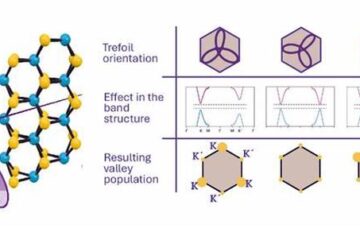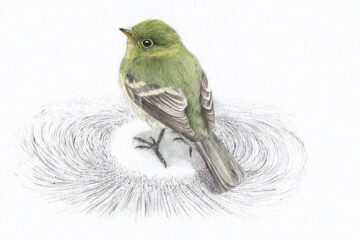Clemson University peach specialist unveils CaroTiger, something to roar about

“Up until now, this peach just had a number — SC82035-13-48 — but it earned a name during our long-term germplasm evaluation research,” said Layne. “We’ve been testing this particular selection at multiple locations for several years. Its performance has been excellent. The initial cross was made by former Clemson peach breeder David Cain, now general manager for International Fruit Genetics in Bakersfield, Calif. It was first selected for further evaluation by former Clemson University Musser Fruit Research Farm manager Bill Newall, and we think we’ve got a winner here.”
New peach selections are tested at a number of peach farms around the state to evaluate how they will grow in different kinds of environmental conditions, including types of soils, rainfall and temperature. Layne works closely with the S.C. Peach Council.
South Carolina is the No. 2 peach producer in the country behind California. In 2011, South Carolina peach production exceeded 100 million pounds. The value of the industry exceeds $60 million, and it employs more than 1,000 people each year.
Layne sees CaroTiger fitting into an important niche in the late-season when many cultivars at this time of the year may have marginal eating quality, drop prematurely or are susceptible to disease.
“It’s a really attractive peach,” he said. “When you cut through the skin into the flesh, you can see that beautiful yellow flesh. It’s a yellow-fleshed, melting flesh, freestone. Occasionally, there may be some red pigmentation around the pit. It’s no problem. Those are anthocyanin pigments, which are antioxidants, which is a health benefit for you.”
Layne explained his choice of the name CaroTiger:
“Well, over the last several years, there have been other peach releases from Clemson,” he said. “There’s been Caroking, Carored, Carogem. So this goes along in that same series of names: Caro being Carolina or South Carolina and Tiger because the Clemson Tiger is our university mascot. If you look at the surface of the skin, you’ve got this yellow background color and you’ve got the red overcolor or blush. It kind of looks like a tiger.”
Each week this peach season, Layne has created a new video recommending the top-performing peach for that timeframe. CaroTiger is featured as No. 18 in this year’s series. It and many other educational videos can be viewed at his “Everything About Peaches” website.
To get Layne’s latest information on peaches, follow him on Twitter at http://twitter.com/PeachDoctor. For more videos and information about peaches, visit his “Everything About Peaches” website at www.clemson.edu/peach. To read Layne’s columns for the American Fruit Grower magazine, visit its website at www.growingproduce.com. The CaroTiger video can be viewed at http://www.clemson.edu/extension/peach/video_everything_about_peaches/peach_picks18.html
Media Contact
More Information:
http://www.clemson.eduAll latest news from the category: Agricultural and Forestry Science
Newest articles

Targeted use of enfortumab vedotin for the treatment of advanced urothelial carcinoma
New study identifies NECTIN4 amplification as a promising biomarker – Under the leadership of PD Dr. Niklas Klümper, Assistant Physician at the Department of Urology at the University Hospital Bonn…

A novel universal light-based technique
…to control valley polarization in bulk materials. An international team of researchers reports in Nature a new method that achieves valley polarization in centrosymmetric bulk materials in a non-material-specific way…

How evolution has optimised the magnetic sensor in birds
The magnetic sense of migratory birds is probably based on the protein cryptochrome 4, and a genetic study has now provided further support for this theory. A team of researchers…





















